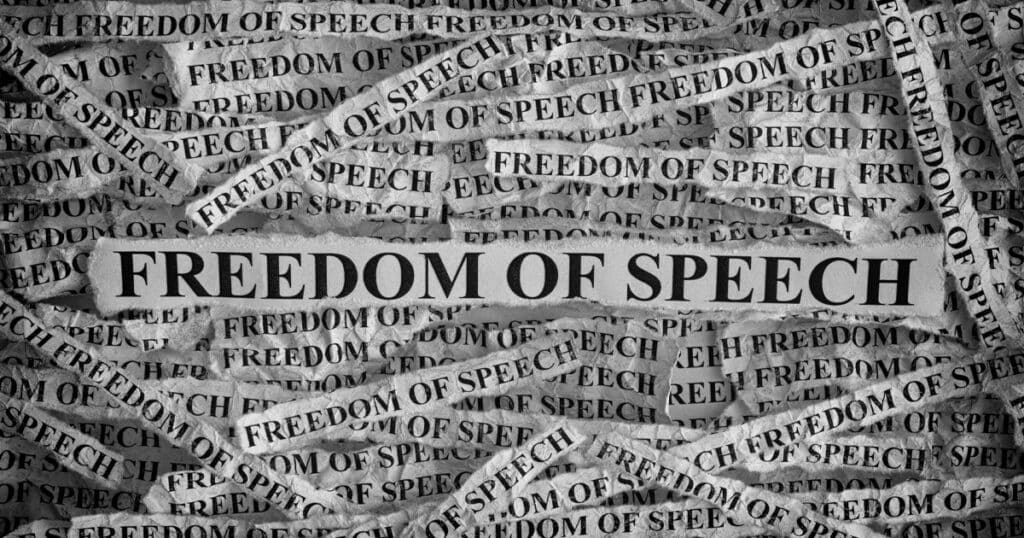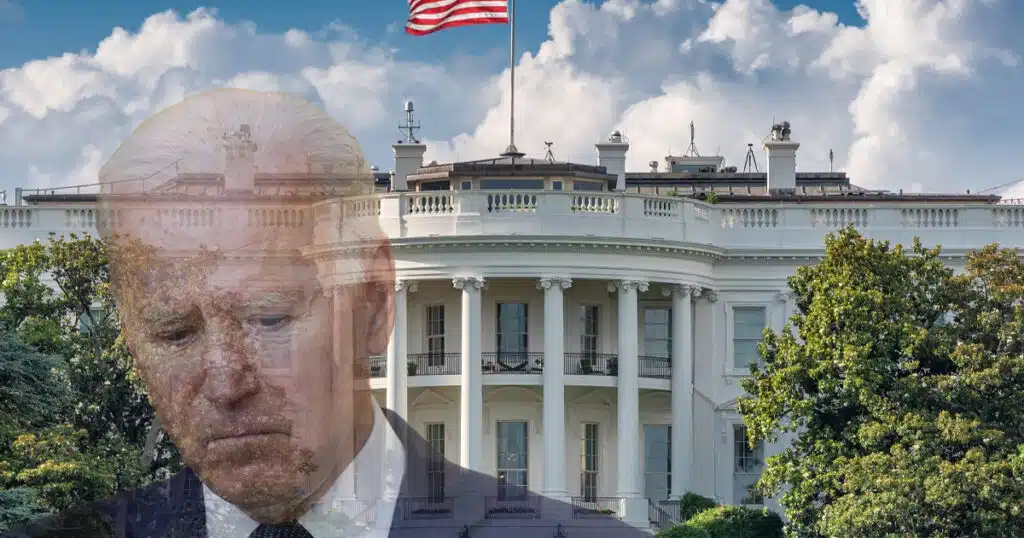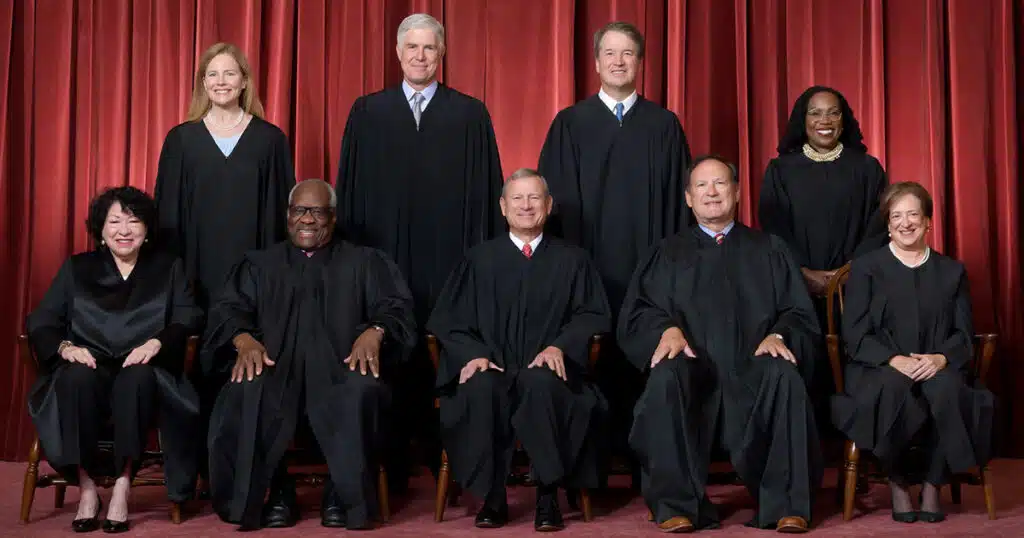
This Election Is a Referendum on Free Speech
The Supreme Court had multiple opportunities during the last term to end the censorship of conservatives by social media. It chose a different path. Now, Democrats are free to double down on the Biden-Harris administration’s massive censorship enterprise.
There is every indication they intend to do so.
The bedrock of American democracy, the First Amendment, prohibits Congress from making laws “abridging the freedom of speech, or of the press.” The prohibition also applies to executive actions and state governments. Until recently, there was bipartisan agreement on the centrality of free speech to American liberties. Today, nearly a third of Americans believe free speech rights go too far.
When Donald Trump was elected president, Democrats in Congress threatened social media platforms with antitrust actions and repeal of the libel protections in Section 230 of the Communications Decency Act if they failed to rein in conservative speech. When Joe Biden took office, the federal government institutionalized a censorship enterprise that coerced and collaborated with social media platforms to censor, suppress, and demonetize disfavored views.
The New York Times acknowledges the left has long sought to limit “unfettered speech.” Former president Barak Obama told a Stanford University conference that government controls must be imposed to stop so-called “disinformation.” Vice President Kamala Harris announced a White House task force to block disinformation involving women’s issues. Democrat vice presidential candidate Tim Walz told MSNBC, “There’s no guarantee to free speech on misinformation or hate speech.” In fact, both are generally protected by the First Amendment. The Democrat platform sees controlling disinformation as a priority.
By contrast, in July, the Republicans adopted a platform that states: “We will ban the Federal Government from colluding with anyone to censor Lawful Speech, defund institutions engaged in censorship, and hold accountable all bureaucrats involved with illegal censoring. We will protect Free Speech online.”
In Murthy v. Missouri, healthcare professionals, Missouri, and Louisiana sued to block the Biden-Harris censorship regime. During discovery, officials testified that they knowingly sought to end-run the prohibitions on government interference in free speech by working with and through third parties, including Stanford, non-profit associations, and social media companies. After reviewing extensive discovery, U.S. District Court Judge Terry Doughty found that the Biden-Harris administration had engaged in “a broad pressure campaign designed to coerce social media companies into suppressing speakers, viewpoints, and content disfavored by the government” and issued an injunction to stop it. A unanimous panel of the Fifth Circuit Court of Appeals agreed with the findings but tailored the injunction to eliminate ambiguities and exclude some agencies.
Florida and Texas then passed laws to make it more difficult for social media platforms to ban political speech. The 11th Circuit struck down Florida’s law, finding that it impermissibly limited editorial discretion, while the Fifth Circuit upheld Texas’ law, concluding that content moderation activities are not speech.
Last term, the Supreme Court weighed in on both cases.
In Murthy v. Missouri, a 6-3 Court overruled the Fifth Circuit, holding that the plaintiffs lacked standing because they failed to demonstrate that their speech was specifically censored by specified actions of identified government officials. The majority found that the platforms had independent incentives to censor content, “often” exercised their own judgment, and likely would have censored the same content without government coercion or encouragement.
In Moody v. NetChoice, LLC, the court unanimously decided that the Florida and Texas appeals courts had inadequately analyzed the First Amendment. It sent the cases back for reconsideration, though warning the Fifth Circuit that content moderation usually involves editorial decisions protected by the First Amendment.
The court’s use of the left’s preferred euphemism, “content moderation,” in these decisions, rather than “censor” or “suppress,” is troubling. And, while the court is properly wary of states intruding in the editorial choices made by social media platforms, it expressed no similar concern about the federal government. Murthy was inconsistent with NetChoice, precedent, and the evidentiary record.
In Peterson v. City of Greenville (1963), the court held that when the government strongly involves itself in a private party’s conduct, it cannot claim the conduct occurred as a result of private choice, even if the private party would have acted independently. In Norwood v. Harrison (1973), Chief Justice Warren Burger explained that the government “may not induce, encourage, or promote private persons to accomplish what it is constitutionally forbidden to accomplish.” In Jackson v. Metropolitan Edison Co. (1974) and Blum v. Yaretsky (1982), the court developed guidelines for when government becomes responsible for private actions by coercing or “significantly encouraging” those actions. In his concurring opinion in Biden v. Knight First Amendment Institute at Columbia Univ. (2021), Justice Clarence Thomas summarized: “The government cannot accomplish through threats of adverse government action what the Constitution prohibits it from doing directly.”
Since the court’s ruling in Murthy, the Biden-Harris administration has ramped up its censorship enterprise. A July report from the Justice Department recycles the same justification of malign foreign influence it used in defending Murthy to again authorize DOJ collaboration with social media platforms to suppress disfavored postings. Last week, referring to Elon Musk’s interview with Donald Trump on X, White House Press Secretary Karine Jean-Pierre channeled former Press Secretary Jen Psaki, asserting that social media companies have a “responsibility” to stop disinformation and misinformation.
Though the Court’s rulings leave an opportunity for future plaintiffs to more carefully link coercion to specific instances of censorship, unless Republicans win in November, government-encouraged censorship of conservatives will only get worse.
This article was originally published by RealClearPolitics and made available via RealClearWire.



